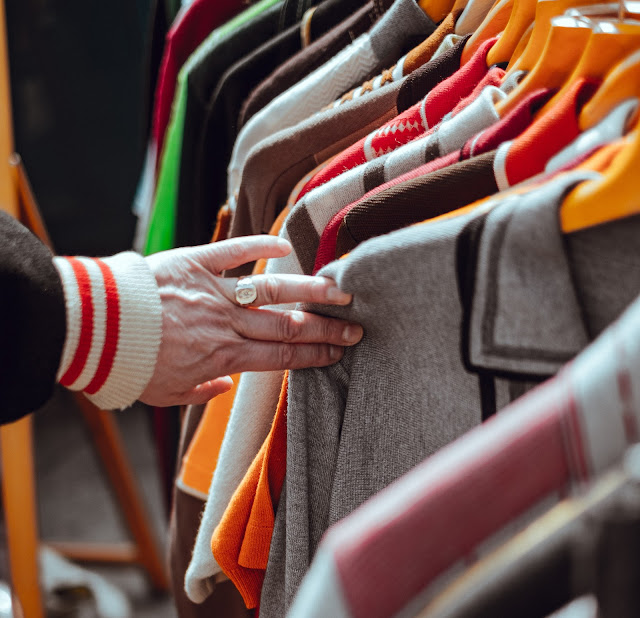Rich Minimalists in a Needy World
Minimalism isn't a numbers game. It's not about
- owning only 100 things
- living in a tiny 300-square-foot house
- keeping only 10 books
- wearing only black, white, and gray clothing
- eating only beans, rice, fruit, and vegetables and drinking only water and herbal tea
Sure, you might experiment by doing any or all of these things in order to learn more about yourself or to help you change your consumer habits, but you can be a minimalist without setting these limits.
One of the definitions of minimalism I like comes from Cait Flanders, author of The Year of Less.* She describes it as "the mindset that helps you recognize what adds value to your life, so you can let go of what doesn't." That applies not only to physical items, but to all areas, including health and diet, work, hobbies, relationships, goals, technology, etc. There are no rules or requirements, but rather a challenge to be intentional about what you will emphasize in your life, and what you will minimize.
* This blog is reader-supported. If you buy through my links, I may earn a small commission.
Do we realize how privileged we are?
Having clutter in the first place is a sign of privilege. We have the purchasing power to acquire things we don't need! And generally we don't have just a few extra keepsakes. We have piles and boxes and closets full of meaningless surplus items. So we live with great abundance. Having the ability to declutter half your belongings and still have plenty is an incredible privilege!
Maybe you know someone who never buys anything they don't absolutely need because they can't afford to do so. Maybe you've been in that position yourself, once upon a time. Maybe it's not a matter of deciding to live with only one car, but of figuring out how to get to work on the bus because you can't afford to replace your old vehicle that finally died. It's not a matter of buying organic veggies and free-range eggs, but of affording bargain-brand macaroni and cheese. It's not a matter of cutting up your credit cards so you stop buying new clothes and shoes, but of scrimping to pay for the glasses your child needs.
How fortunate I am to be in a position to choose to be a minimalist. If I'm tired of having excess in my life, I can let it go without a worry. If my diet isn't making me feel healthy, I can walk into a grocery store and buy better food. If my clothes don't fit well or make me feel frumpy, I can buy better clothes. If I need or want to learn a new skill, I can take a class. The list goes on.
We are wealthy.
If you're tempted to compare your financial situation with someone who has a bigger house or a fancier car or takes more luxurious vacations than you do, stop and think. It's become normal to criticize the 1% for their greed and materialism, thus implying that we don't commit those sins because we're not part of the wealthy few. But something interesting happens when we widen our gaze.
Globally, almost half the world's population (more than 3.7 billion people) live on less than US $6.85 per day (approximately US $2,500 per year). According to the non-profit group Giving What We Can, an annual income of US $45,000 places you in the richest 2% of the world's population. An income of US $29,000 per year places you in the top 5%.
Even a minimum wage job ($7.25 per hour, 40 hours per week, 52 weeks per year) puts you in the top 13.7% of all the people on the planet, with an income 5.3 times the global average. I know you're struggling to get by on that salary if you live in the United States, even with the many programs that exist to help you. But comparing yourself to the rest of the world could still change your perspective.
When we expand our world view, we discover that we belong to the "haves." We're the ones with adequate income, decent shelter, ample food, clean water, stable government, public education, libraries, parks, and many other benefits.
This realization could change our lives.
If we're among the top 2%-5% of wage-earners in the world, maybe increasing our incomes isn't going to make us any happier. If having more money isn't the key to a good life, we'll have to look somewhere else.
If we're discontented and restless, more shopping, more experiences, and more debt will probably not satisfy the longing of our hearts. If having more stuff isn't the key to happiness, we'll have to look somewhere else.
If we've been waiting to be more generous until we've met our own needs, maybe we should realize we've already done that.
The time for generosity is now.
When we choose a simpler life, we're not impoverishing ourselves. We're enriching our lives with space, time, freedom, energy, peace, contentment, and joy. When there are so many people who don't have enough to begin with, let's never forget that we are blessed to be able to choose to live with less.
Updated February 2023






I feel so lucky to even be able to read that. Thank you for the post! Great perspective.
ReplyDeleteWe ARE so lucky! Thanks for your comment.
DeleteWhat an eye opener this article has been for me! I'm truly blessed! Thank you!
ReplyDeleteIt was an eye opener for me to do the research and find out how rich I am. I'm also blessed!
DeleteIt's amazing when things show up in your life at the most perfect timing! Longing for a purpose that actually helps someone in need.
ReplyDeleteI'm so glad this older post was timely for you! Isn't it great when that happens? I know you'll find just the right opportunity to give and serve.
Delete